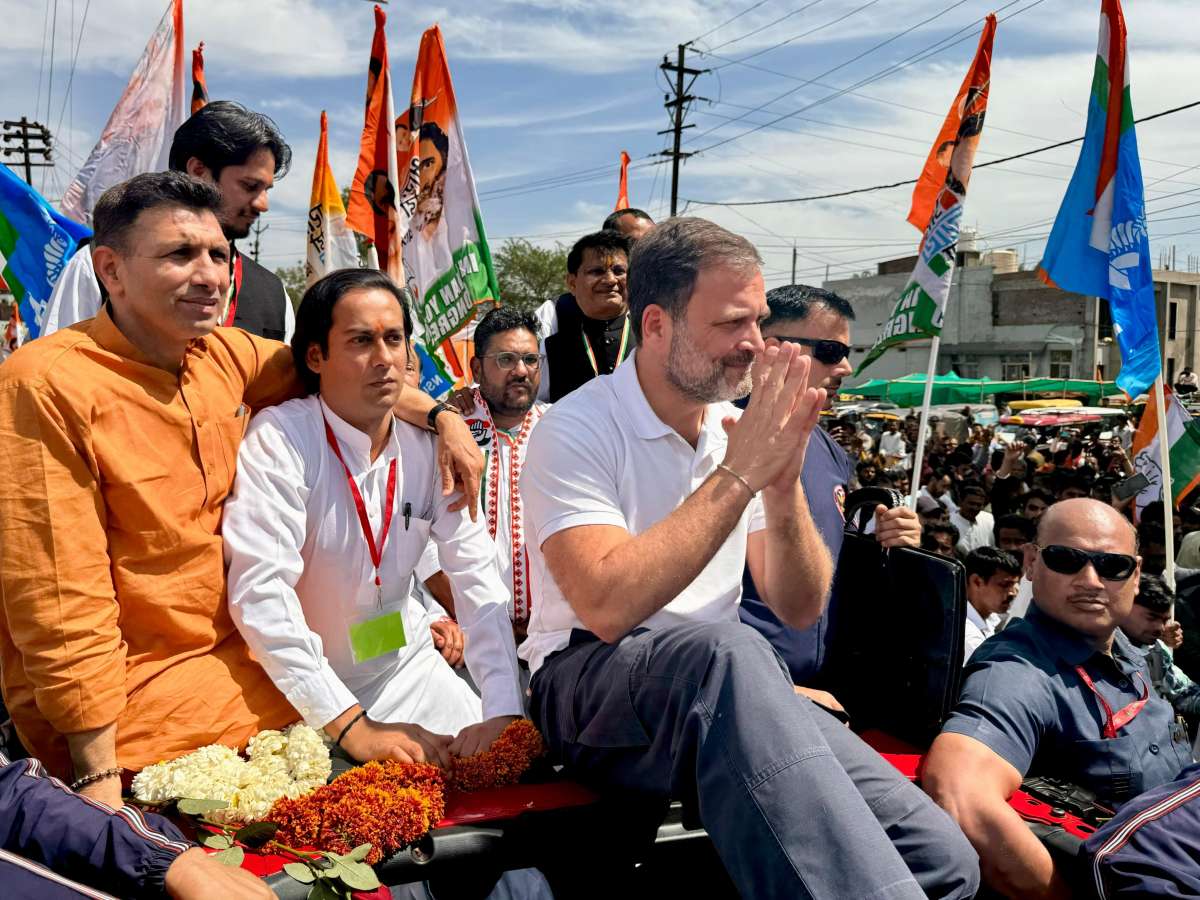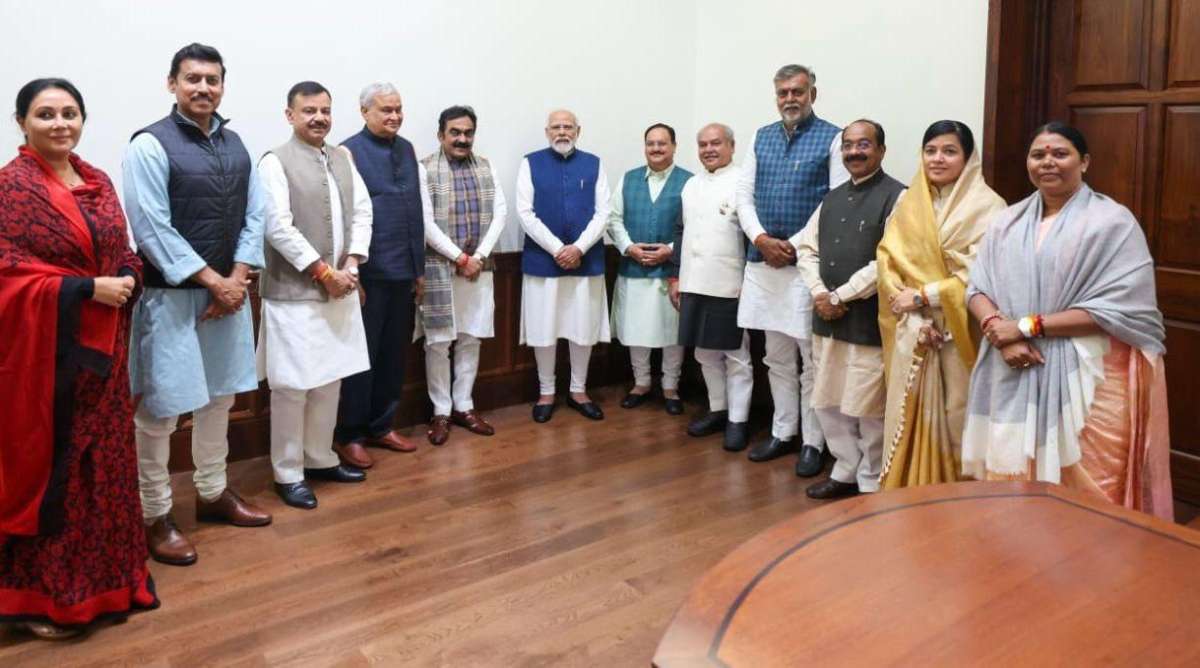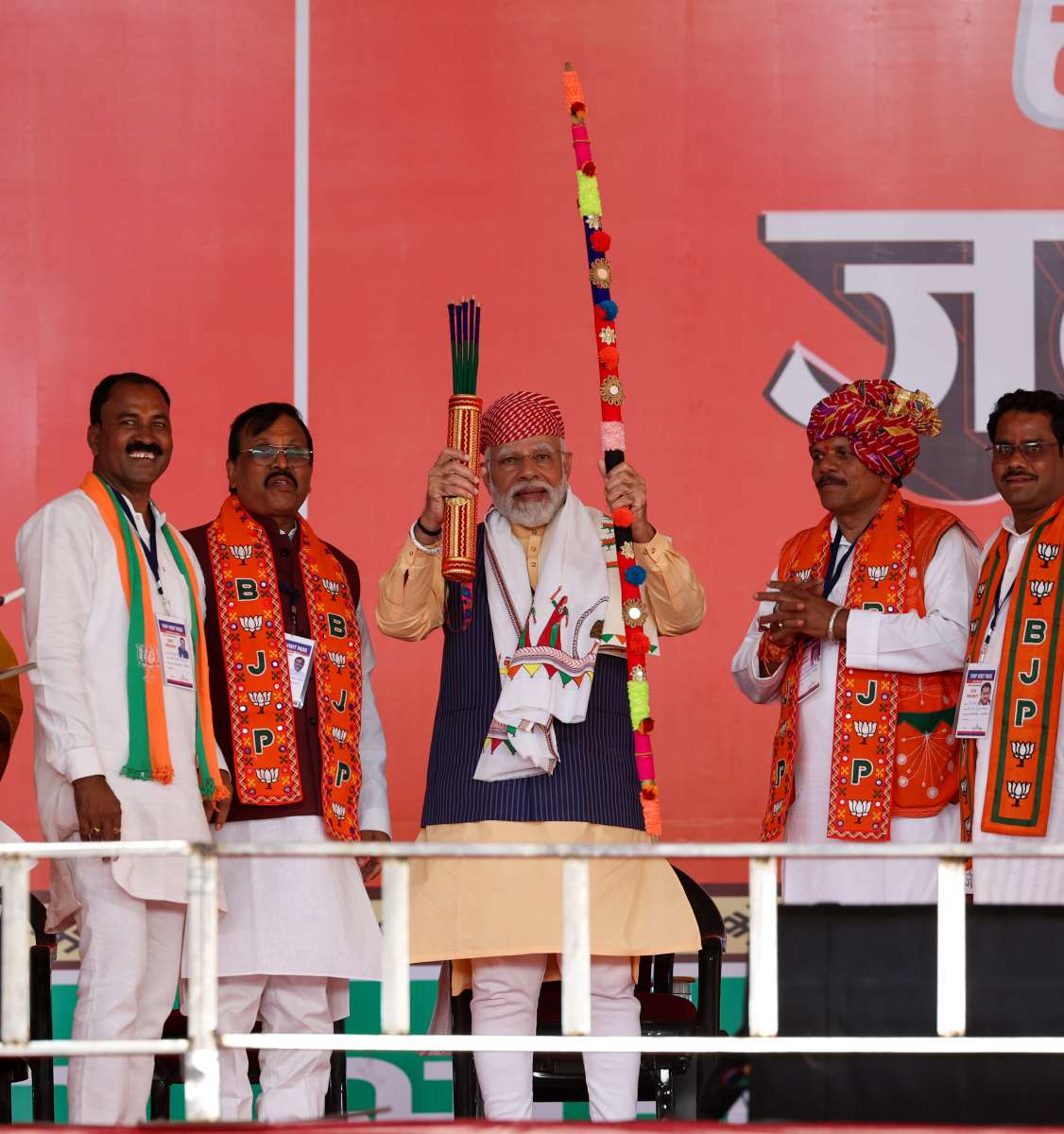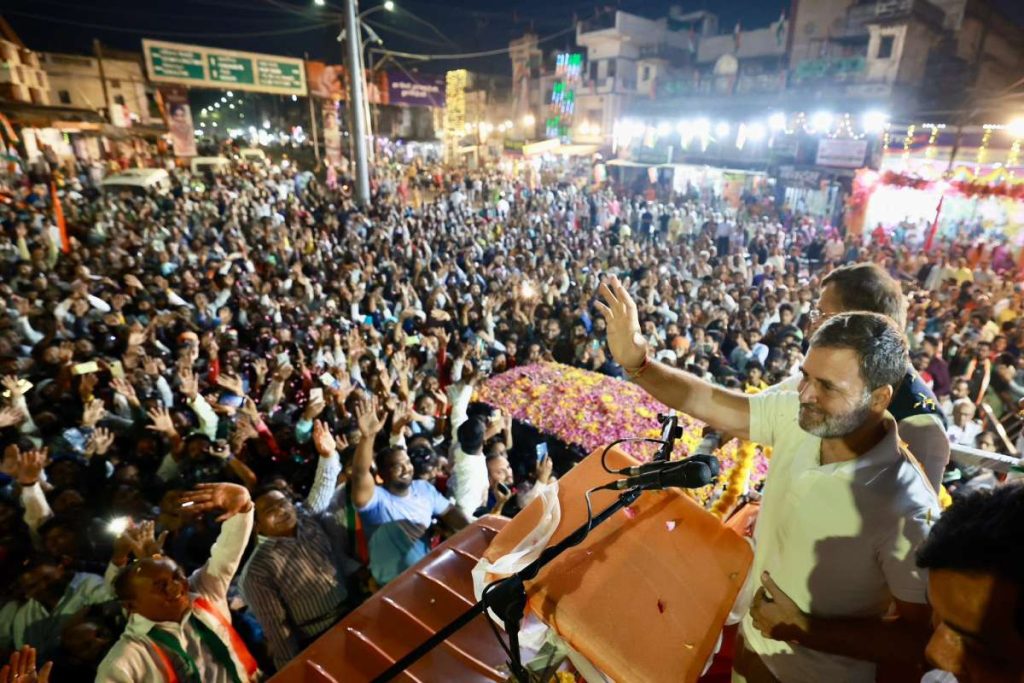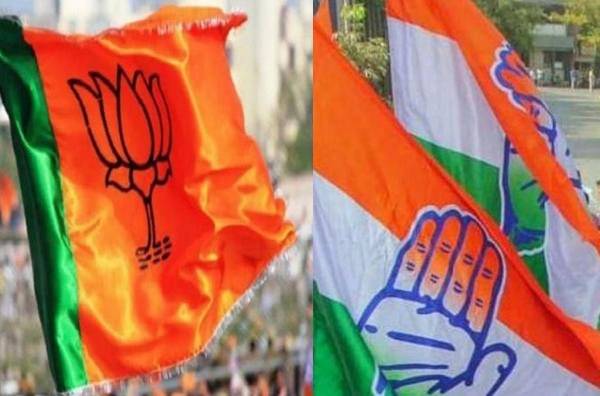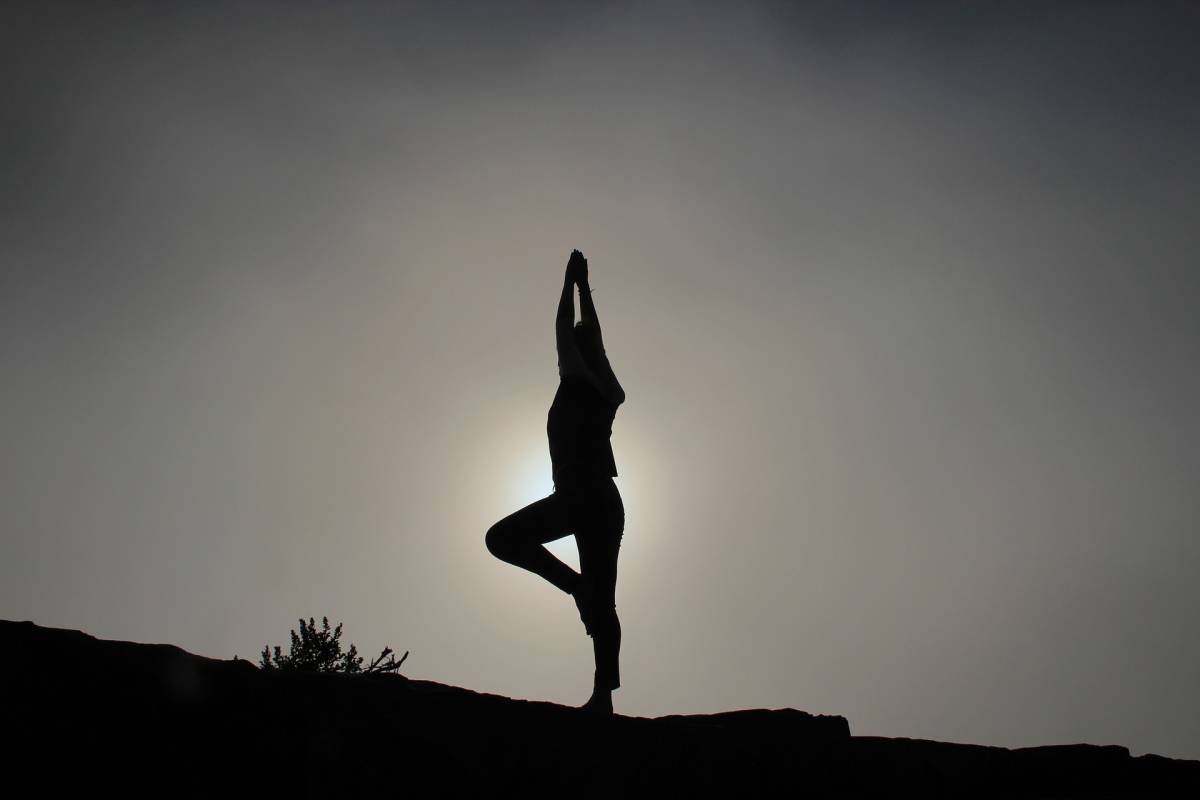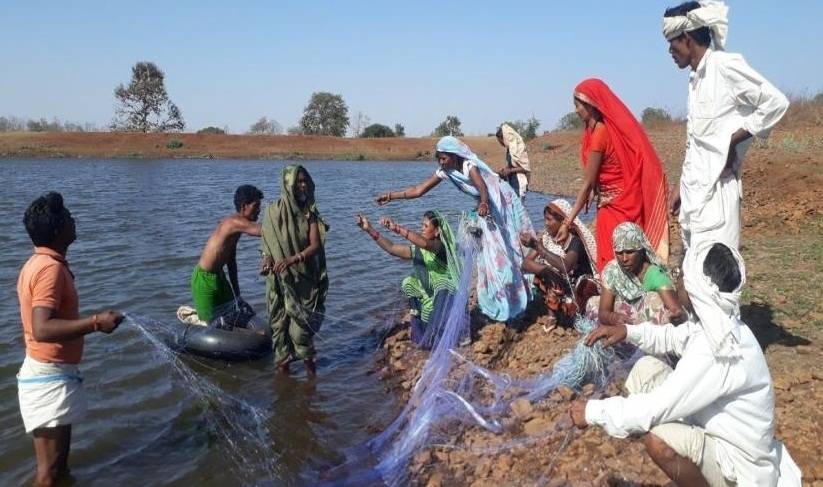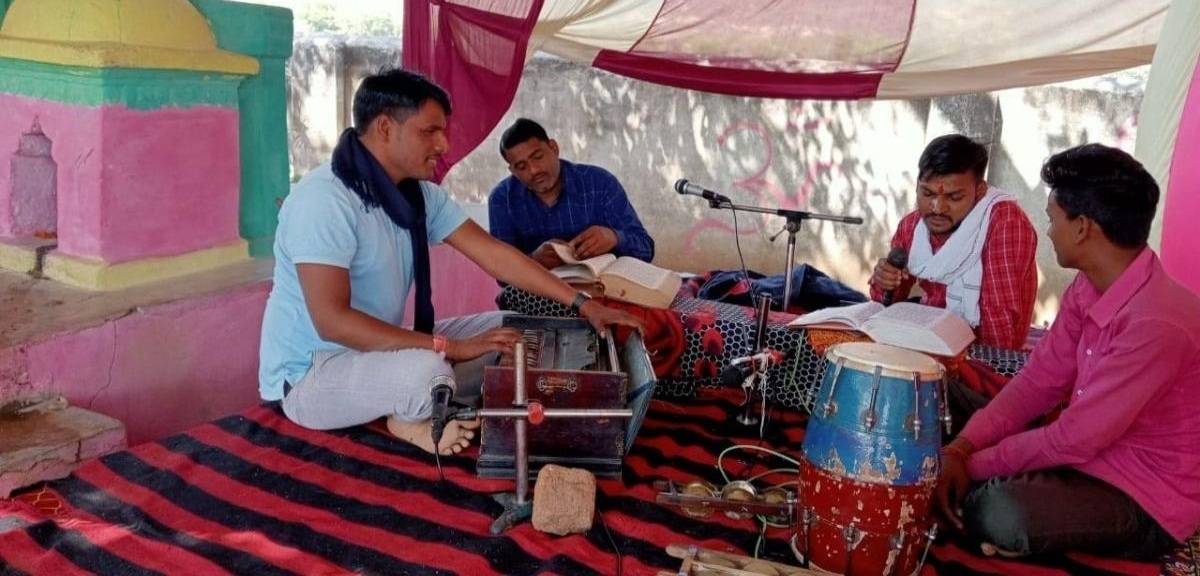This resulted in an altercation between the women fishers and the farmers, and overnight, fish were stolen from the pond. The women were also not allowed to go near the pond to access the waters…reports Mohammad Asif Siddiqui
Chabutara village in Madhya’s Pradesh’s Khandwa district has always been arid. The water-scarce summer months were particularly difficult in this primarily tribal village, with lack of water resulting in the death of cattle.
Women would need to trudge miles in search of drinking water. Most villagers would leave for cities and towns to earn a living.
Yet, in spite of back-breaking work for over three months, there was hardly much made to live on when they returned home.
For those with cattle, it was a significant struggle. In summer, not just the larger water bodies but the wells and hand pumps, too, would not yield any water. This was the situation in not just Chabutara in Khalwa block, but also in the adjoining villages of Lakhanpur, Kekadiya, Ambakhal, Khaari.
The villagers had to rely on the owners of private wells 2 km away to provide water for their cattle. For this, they needed to make a monthly payment of 4 kg of wheat to the owners until the rains arrived.
Women take the lead
Typically patriarchal, Chabutara had never believed in letting its women access their rights as individuals. Notwithstanding their contribution to running the household, women rarely had a say in any decision. Nor were they extended support when they needed it.
Take the case of Budhiyabai. After losing her husband, Budhiyabai had returned to her parents’ home in Chabutara with an infant son. But they had refused to take her back, compelling her to set up a home in a little hut all by herself.
However, matters changed when she joined a local women’s Self-Help Group (SHG), Durga Mahila Samuha. Budhiyabai was soon joined by Ramkali, Setibai, Rukmabai and many others, all of whom had been migrating every summer in search of work.
Following the death of several heads of cattle during a particularly difficult summer, Budhiyabai decided to address the situation by appealing for help through Spandan, a local NGO that had been working with her SHG on nutrition. She took up the matter with Spandan social worker, Seema Prakash.
“Water was a major problem here, but we didn’t have the means to help the women,” Prakash recalled.
“So we took the matter up with our partner, Goonj, which is a nationwide NGO. Goonj decided to pay them in the form of 2 kg of rice (given daily) per person and clothes every fortnight, and the women went on to dig a dried-up [5-acre] pond so deep that it would hold water all through the year.”
“We then helped them access a government loan to opt for pisciculture,” Prakash added. “The loan helped them buy fingerlings to start their venture. The women pooled in money through their SHG and bought fishing nets and fish feed for fish cultivation. In three months, the fish grew big enough for the market. Thus, the women’s group earned a neat Rs 20,000 on their investment after a period of four years.”
Rather than exhausting the money, they decided to save the amount to return the loan. But even as their venture gathered steam, with regular harvests and the sale of fish in the weekly market, problems reared their ugly head.
The women fought a long battle against patriarchy and braved many underhanded activities perpetrated by the men in the village to scuttle their efforts at financial independence. It was the consistent support of a few allies that helped them turn the tide.
Fighting the odds
In arid Chabutara, agriculture is rain-fed, owing to lack of water in the dry months. A few farmers, led by Sukhiram Paalvi and Gangaram Paalvi, demanded access to the waters of the lake to irrigate their farms, which the women refused.
This resulted in an altercation between the women fishers and the farmers, and overnight, fish were stolen from the pond. The women were also not allowed to go near the pond to access the waters.
While the women had revived an already present albeit dead pond which has been approved/dug by the government, the men had to acquire fresh licenses from environment board in the state and other government permits in order to dig a big enough pond that would be capable of supporting their irrigation needs.
While they made no efforts in this direction, or even help the women revive the pond, once the pond was ready and full of water, at night they would come to steal fish or clandestinely run the motors to water their fields.
Recounting their travails, Budhiyabai told 101Reporters: “They abused us for not letting them use the water. But nobody thought of the cattle in the village that were benefiting from the pond.”
The fight escalated into a major battle, with the men damaging the pond. The matter ultimately had to be reported to the police, who arrived and issued a warning. But this did not amount to much, given the clout of the opposing farmers. The women realised that they would have to help themselves.
Dividing themselves into batches of 10, they took to guarding the pond. Soon, a village elder, Patiram Mohe, came forward to support them. In no time, the women saw other men come forward in support.
But matters took time to settle down. It’s been three years since the pond was restored and fish cultivated, and the women have continued to go strong.
From March to May, the women regularly harvest fish for the weekly market, earning their SHG a monthly income of Rs 2,00,000. Leaving aside a sum for maintaining the pond and buying fish feed, the women share the rest among themselves.
Moreover, migration from Chabutara has stopped completely. The women say that the five-acre water body is a great help for the women in the village, who use it for all their daily needs. The cattle, too, have their fill all through the year. In fact, in the three years since the pond was restored, there has not been a single death due to lack of drinking water for animals, as was common until the recent past. What’s more, cattle from four adjoining villages, too, avail of the water, according to the local representative of Spandan.
Change in status in patriarchal households
Most significantly, while substantial earnings from pisciculture have improved the status of many households, it has imparted a sense of empowerment among the women involved.
One Rakhiabai’s husband, Ram Singh, whose family of shepherds could never think beyond a purdah-clad daughter-in-law, is now proud of his wife.
Jeejibai’s mother-in-law no longer objects to her involvement with Spandan’s activities in the village, and neither is she pressured to confine herself to the family farm.
Her newfound financial independence has legitimised her activities for her husband and family members, who are happy about Jeejibai carving a professional niche for herself.
Similarly, Setibai’s husband Chironjilal, who always quarrelled with his wife, learned to respect and help her, she says.
Ramkali, who lost her husband Laxman Dhurve five years ago, now proudly heads her household.
Budhiyabai, who had once felt lost and helpless with no support from her maternal or matrimonial families coming her way, now feels happy and confident, as she brings up her toddler.
The women not only manage to nurture and harvest their fish, but are now helping many local youth earn a decent livelihood selling fish procured from their water body.
Truly, water has breathed a new lease of life to Chabutara and its neighbourhood.
ALSO READ-Tata Technologies to set up EV production unit in Punjab

